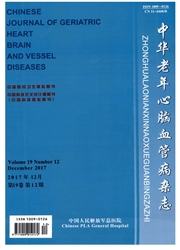

 中文摘要:
中文摘要:
目的 探讨多系统萎缩(MSA)-P型与帕金森病(PD)的临床特征和认知功能损害的异同。方法 连续选择MSA-P型和PD患者共55例,根据诊断分为MSA-P组19例和PD组36例。详细收集年龄、病程、教育年限、统一PD评分量表第3部分(UPDRS-Ⅲ)及日常生活活动能力量表(ADL)评分等,用简易智能状态检查量表(MMSE)、蒙特利尔认知评估量表(MoCA)、韦氏智力及记忆力等进行神经心理评估,并进行比较分析。结果 MSA-P组的ADL及UPDRS-Ⅲ评分均显著高于PD组[(31.74±10.56)分vs(16.39±4.18)分;(43.79±16.99)分vs(28.72±15.14)分,P〈0.05]。2组MMSE、MoCA总分比较,无统计学差异[(26.32±3.13)分vs(27.50±2.52)分;(20.42±5.00)分vs(22.56±4.80)分,P〉0.05]。MSA-P组操作量表分及韦氏记忆量表分低于PD组[(30.32±9.91)分vs(37.28±9.09)分;(54.53±23.14)分vs(76.28±22.97)分,P〈0.05];图形排列、积木测试和理解记忆评分低于PD组[(5.79±2.12)分vs(7.22±1.69)分;(6.16±3.06)分vs(8.17±2.78)分;(5.53±2.74)分vs(7.75±2.99),P〈0.05]。结论 MSA-P型患者运动功能及日常生活能力恶化较PD快;其总体认知功能受损与PD类似,但执行功能、视空间和记忆力等的认知损害较PD严重。
 英文摘要:
英文摘要:
Objective To compare the cognitive functions of multiple system atrophy-parkinsonian variant (MSA P) and PD by studying their neuropsychological performances. Methods Fifty-five MSA P and PD patients were divided into MSA-P group (n=19) and PD group (n=36). Their age,desease duration, education years, UPDRS -ⅢⅢ score, ADL score were recorded, their intelligence and memory were assessed according to the MMSE, MoCA scale, WAIS and WMS-R, and compared. Results The ADL and UPDRS HI scores were significantly higher in MSA P group than in PD group (31.74±10.56 vs 16.39±4.18,43.79±16.99 vs 28.72±15.14,P〈0.05). No significant difference was found in MMSE and MoCA between the two groups (26.32±3. 13 vs 27.50±2.52,20.42±5.00 vs 22.56±4.80,P〉0.05). The operation scale score,WMS-R score, block design score, picture arrangement score and logical memory score were significantly lower in MSA-P group than in PD group (P〈0.05). Conclusion The motor function and daily life ability deteriorate faster in MSA-P patients than in PD patients. The general cognitive impairment is sim ilar in MSA P and PD patients. However,the impairment of executive function,visuospatial func tion and memory is more severe in MSA P patients than in PD patients.
 同期刊论文项目
同期刊论文项目
 同项目期刊论文
同项目期刊论文
 期刊信息
期刊信息
